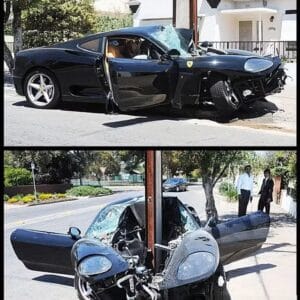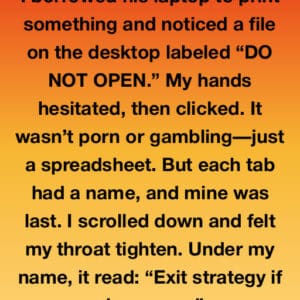Maggie Baugh came to Nashville the way countless dreamers do—car packed, guitar case scuffed, a notebook stuffed with half-finished verses and melodic fragments only she could hear. At 25, she wasn’t chasing virality so much as a seat in the circle: writers’ rounds, late-night demos, early-call load-ins, the slow, unglamorous climb that earns you a reputation long before it earns you headlines. For a while, that’s exactly how it went. She built a name the old-fashioned way—show by show, session by session—until one unscripted moment onstage with Keith Urban changed the temperature around her overnight.
During an October 1, 2025 performance, Urban tossed off a quick lyric swap in his hit “The Fighter,” turning “baby, I’ll be the fighter” into “Maggie, I’ll be your guitar player.” It was the kind of playful, in-the-moment riff musicians trade all the time—call-outs, ad-libs, little nods to the band. But context is combustible, and the moment landed just days after reports of Urban’s divorce dominated entertainment feeds. A line that might’ve passed as a musician’s wink suddenly became grist for a broader, messier narrative.
The internet did what the internet does: clipped the moment, stripped the nuance, and sent it streaming across platforms. Within hours, comment sections formed their familiar trenches. One camp framed it as harmless, even sweet—proof of a seasoned headliner giving a deserving player a little shine. Another camp cast it as a provocation, or worse, a signal of something offstage. Baugh’s own social channels filled with whiplash: applause for her chops, accusations that had nothing to do with her work, and a lot of noise in between.
Her father, Chuck Baugh, tried to tamp down the speculation with a straightforward reminder: “She’s a guitar player for him. It’s more of a musician thing than a dating thing.” In Nashville, where reputations are built face-to-face in studios and side stages, that rang true. People who’d watched Maggie grind—load in, line check, deliver—recognized what got her on that stage in the first place. She’d earned the slot. The moment just happened to arrive under a magnifying glass.
Baugh’s story starts far from Lower Broadway. She grew up in Boca Raton, Florida, and picked up the violin at six—classical bow hold, school concerts, all of it. Music was sanctuary as much as skill; when school turned mean, the practice room stayed kind. The guitar followed, and with it the pull of songwriting. By 18 she’d moved to Nashville, jumping into the loop of co-writes, gigs that pay in drink tickets, and the occasional opening slot that feels like daylight. She toured nationally. She landed a CMT Awards performance. She released her debut album, Entertainer’s Heart, and did the less glamorous work of being everywhere at once—radio visits at 7 a.m., backline snafus at 7 p.m., merch-count math at midnight.
People inside the industry often talk about “the long yes”—the accumulation of small, consistent wins that signal staying power. That was the track Maggie was on before one clip tilted the conversation. Now she’s negotiating a different kind of spotlight: the vortex where a musician’s craft collides with a celebrity news cycle that doesn’t care about set lists or woodshedding.
There are risks and opportunities in that collision. The risks are obvious: distraction, mislabeling, the way a person can become a character in someone else’s story. The opportunities, if she can seize them, look like leverage—more ears for her songs, more calls from MDs who’ve seen what she can do live, better slots on bigger stages. Publicists will nudge toward a steadier frame (“artist first”), while bookers and brand partners quietly watch how she handles the pressure. It’s a familiar test in a city that sees a dozen breakout moments every year: can you keep the attention you didn’t ask for without letting it rewrite who you are?
Veterans in town will tell you that the surest path through a viral storm is the same as the one that brought you to the stage: keep playing well, show up on time, be good to the crew, and let the music carry the conversation back to where it belongs. Baugh seems built for that. Onstage, she’s fluid between lead guitar fire and the finesse she honed with a violin bow. In writing rooms, collaborators describe her as prepared and generous—the kind of co-writer who shows up with ideas and leaves with better ones.
The broader moment also shines a light on something that deserves it: the presence of women as lead players in mainstream country touring bands. The pipeline has never lacked talent; it’s needed visibility. If a single clip draws more kids—especially girls—toward a fretboard or a fiddle, there’s a silver lining worth guarding. Baugh didn’t set out to be a symbol, but symbols get assigned, and she can choose to reframe it: this is what a working, road-tested, chart-minded musician looks like.
Meanwhile, the online swirl will do what it always does—flare up, churn, move on. What stays is the body of work. Baugh has a catalog to expand, shows to play, and songs to place—maybe even the next batch that nudges her from “talked-about” to “can’t-miss.” The people who matter most to a career—music directors, producers, festival buyers, other artists—tend to have long memories for professionalism and short patience for drama. Keep the former, avoid the latter, and the doors that opened because of a moment can stay open because of the music.
In other words: the thing that brought Maggie Baugh to Nashville is still the thing that will carry her forward. One line change may have bent the spotlight, but what she plays under it will determine how long it lasts.




